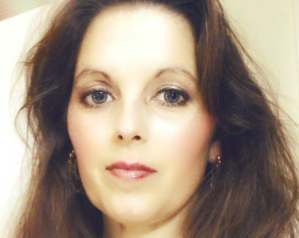
Victoria Oropello: Improving Mental Health for Inmates
With almost 20 years of experience in the mental health field, Victoria Oropello has seen it all. She’s intimately familiar with the challenges patients, practitioners and advocates face on a daily basis.
“The field of mental health and addictions is a constant uphill battle — not just because of the population you’re working with, but because of the system as well,” she says.
Oropello, a behavioral clinician, is the director of forensic science at the Wake County Detention Center in Raleigh, North Carolina. Her organization operates at the intersection of legal and clinical arenas, providing master’s-level clinician and case management services for two county jails — a total of almost 1,600 beds.
“There’s a very high need for mental health and addiction services in the jail,” she says. “We have a huge number of people with a history of trauma that manifests in addiction or in other mental health conditions. We’ve also got some very mentally ill people with psychotic disorders who end up in jail.”
Even on the best days, Oropello and her staff are tasked with a difficult balancing act. In addition to providing effective psychiatric clinical care, they’re navigating legal factors, systems-level issues and complex security protocols. With the rapid emergence of COVID-19, the work they do is more essential — and difficult — than ever.
“The pandemic has been hugely impactful,” she says. “The jail didn’t have masks to spare, and the residents didn’t end up getting masks until about two months ago. We had to make a huge shift to our processes, which created a huge amount of stress. A lot of my staff are coming into contact with a variety of people every day. They don’t know if they’ve been exposed, and then they’re going home to children and pregnant wives.”
Turning Experience Into Action
Oropello wanted to do more, both within her organization and beyond it. She didn’t consider public health until recently, when she attended a conference at the Wake Forest Baptist Medical Center. One of the presenters, a lawyer, had supplemented her legal training with a Master of Public Health (MPH) degree.
The more Oropello thought about it, the more it made sense. With an MPH, she could make a difference on national and global levels, not just within individual patient-provider settings. She could get involved in advocacy and policy work. She could expand her career horizons. And, by attending the online MPH program from the UNC Gillings School of Global Public Health, she could do it all without leaving her job.
“For my MPH, the Gillings School was the perfect opportunity. I’m right down the road from UNC, they have this great program online and they’re tied as the No. 2 school of public health in the country.”
Learning From Other Leaders
When it came time to choose a concentration, Oropello decided on MPH Leadership because it would give her the interdisciplinary insight and executive-level skills she was seeking.
“You’re not just focusing in one area of public health, like nutrition, epidemiology or biostatistics. The program gives you a great overview of all of those concentrations and prepares you to lead. Instead of being a nutritionist, for instance, you might be the director of a program that includes nutrition.”
Oropello can tell her professors want her to succeed, describing them as “beyond accessible.” The program has also given her the chance to work closely with other students, many of whom have already accrued years of professional experience in public health or related fields.
“There’s a lot of diversity in our program, a wealth of knowledge and experience,” she says. “I’m learning so much from the people in my cohort.”
To master tough quantitative courses, like Biostatistics and Methods and Measures, Oropello has even called on recent graduates and more advanced students for free tutoring via Zoom. Whenever she’s struggling, they’re available to help her break down tough concepts, prepare for tests and navigate other aspects of the program with the kind of insight only people who have been in her shoes can share.
That collaborative, student-centered culture isn’t limited to the classroom.
“UNC has been amazingly impressive with all the support they provide,” she says. “You have a student adviser. You have an academic adviser. You have a faculty mentor. Before you get in, you have an admissions counselor.”
Between the strong sense of community, the accessible learning model and the quality of her education, Oropello feels confident about her future — and certain she made the right choice.
As she puts it: “It was meant to be.”


